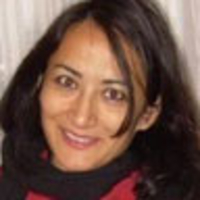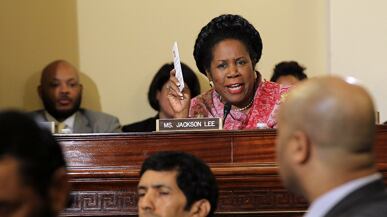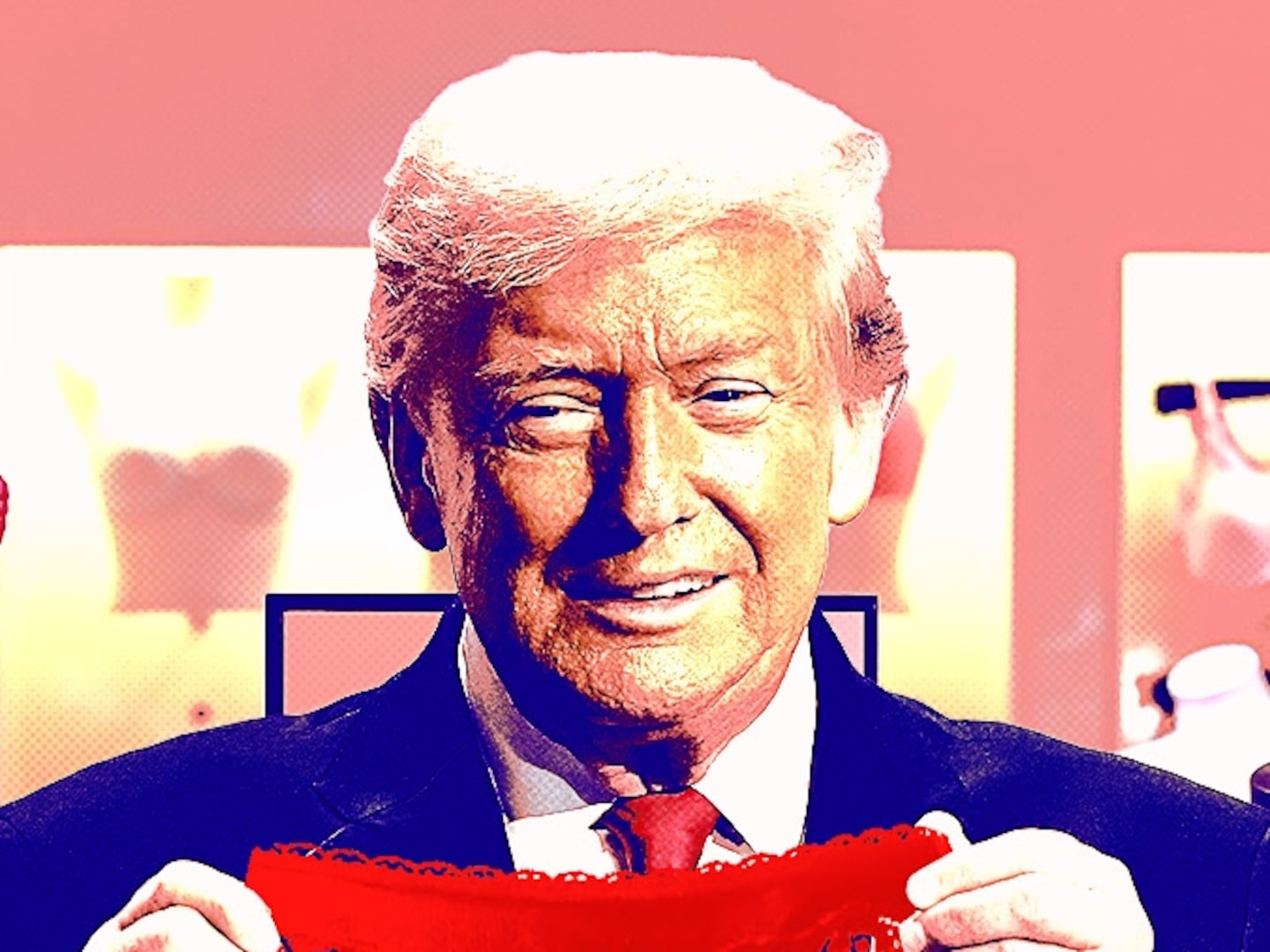In the headlines, two minutes have defined the four-hour hearing of the House Homeland Protection Committee on radicalization of Muslim American community: Minnesota Democratic Rep. Keith Ellison breaking down as he told the story of 9/11 Muslim paramedic, Mohammed Salman Hamdani, saying some people tried to “smear” Hamdani’s name before his remains were found, “solely because of his Islamic faith.” “Keith Ellison cries,” read a caption at conservative website, the Daily Caller. “Rep. Ellison breaks down during hearing,” read the Washington Post headline. “FEAR THY NEIGHBOR,” flashed on the screen as liberal MSNBC host Chris Matthews played the Ellison video and took committee chairman Rep. Peter King (R., N.Y.) to task for bashing Muslims.

But, from my vantage point in the fourth row of the packed hearing room, sitting next to my eight-year-old son, Shibli, (on a special field trip to Capitol Hill with mom), I was left with a very different lasting memory, after Ellison wiped his face, gathered up his papers and swept quickly out of the room. The hearing didn’t amount to the much-anticipated slam against Muslims but rather it devolved, ironically, into a figurative lynch mob by leading liberals on civil rights and women’s rights against truth-tellers on radicalization within the Muslim community. It was horrifying to witness.
The attempt to discredit war stories from the trenches in the battle against extremist interpretations of Islam is extremely troubling to me, as a writer-activist challenging sexism and extremism in our communities, because so much of the inspiration for reform comes from the success of liberals in the U.S. civil rights, women’s rights, and other social justice struggles. (I’m as liberal as you can get: pro-gun control, pro-choice, pro-union and pro-same sex marriage.) But, on this issue of challenging extremism inside Islam, the hearing revealed to me that liberals, sadly, are largely out to lunch. If we continue at this rate of denial, as a nation, I’m seriously afraid we don’t stand a chance against al-Qaeda and Islamic militancy.
In the hearing’s first hour, after Ellison’s exit, three witnesses testified from the trenches about the very real challenges of challenging extremism in American-Muslim communities. Phoenix, Ariz., Syrian-American Muslim physician Zudhi Jasser said he faced a “a paralysis” in the community against tackling issues of extremism, describing how his family had been subject to attacks for his activism. A Somali-American Muslim activist, Abdirizak Bihi, said officials at the Abubakar As-Saddique Islamic Centre, the largest Somali mosque in Minneapolis, “threatened me and intimidated me” when he tried to get answers about a nephew, Burhan Hassan, 18, who had been radicalized, he said, along with other Somali youth, and killed in Somalia after he went there to join Al-Shahaab, the militant group. A mosque official denied the charges to the local paper. First, Bihi said, mosque officials warned him and others that they would be shipped to Guantanamo Bay if they turned to the FBI for help, and then told them they would face “eternal fire” if they challenged mosque officials about their role in the radicalization. Ultimately, he said, community members called them “infidels.” “We regret the silencing and intimidation faced by leaders and activists who dare speak out on the real challenges that keep our youth and community vulnerable to radicalization,” Bihi said. “Burying our heads in the sand will not make this problem go away.”
An African-American Christian, Melvin Bledsoe, said that his son, Abdul Hakim Muhammad, born Carlos Bledsoe, got “brainwashed” among Muslims in Nashville, Tenn., before heading off to Yemen for terrorist training—only to return to kill one soldier and injure another man at a military recruitment office in the U.S. Officials at the two Nashville mosques, Al-Farooq Islamic Center and the Islamic Center of Nashville, told the Tennessean newspaper that Bledsoe’s son wasn’t radicalized at their mosques, but they said he did pray at their mosques.
To me, their stories resonated. They were the same dynamics of intimidation that I and others have experienced trying to challenge the dogma at our mosques.
After finishing their testimony, a number of Democratic lawmakers took snide potshots at the witnesses and the legitimacy of the discussion—as Republicans took their turn at the microphone, insisting they weren’t on a campaign against Islam. Texas Democratic Rep. Sheila Jackson Lee, chosen one of the "100 Most Fascinating Black Women of the 20th Century" by Ebony magazine, said there wasn’t any “redeeming factual information” to be gotten that day. California Democratic Rep. Jackie Spier, the daughter of an Armenian-American and a German Jew and “the first California state legislator to give birth while in office,” according to her official bio, said about the witnesses “they’re not experts,” noting, “While the anecdotes are interesting, I don’t think they are very enlightening.” Texas Democratic Rep. Al Green, a former NAACP leader and a winner of the Texas Black Democrats’ Profiles of Courage Award, said, “I have no problem discussing terrorist organizations rooted in religion. That’s why I want to discuss the KKK.”
As he spoke, copies of a document circulated at the press table with a title page, screaming in bold letters: “Manufacturing the MUSLIM MENACE.” It was published by a Somerville, Mass., organization called Political Research Associates, a self-described “progressive think tank devoted to supporting movements that are building a more just and inclusive democratic society. We expose movements, institutions, and ideologies that undermine human rights.” The report doesn’t detail the intolerant, sexist and violent elements of extremist interpretations of Islam but, rather, it’s an 80-page treatise that focuses on “Islamophobia in Terrorism Training.”
In my row, an activist with Code Pink, a liberal protest group, sat near the aisle with a sign on pink cardboard paper tucked into her bag, a clear message in big capital letters, “STOP DEMONIZING MUSLIMS.” A few rows behind her, a white-haired activist sat quietly with a peace sign pendant, silver glitter peace sign bag and a sign that read: “Before You Criticize 1st Break Bread Together,” a heart drawn on the side with “Love” inside the heart.
It’s all wonderful sentiment. But when we stop there and forgo the hard discussions about problematic interpretations of Islam, then we’ve just neutered ourselves. What’s so disheartening is that women’s rights and civil-rights leaders and activists have fought the same forces of intimidation and theological distortion that we face in the Muslim community when we challenge the dogmatic. We should be natural allies. Challenging authority and legitimacy is usually the tactic puritanical Muslims use against reformers.
Conservatives have recognized the importance of challenging Islamic extremism, but their rhetoric and solutions are sometimes so alarming that they thwart constructive conversation. The liberals attack folks such as Rep. Peter King, chairman of the House Homeland Security Committee, as the wrong person to lead the discussion. But the reason I supported these hearings was that, at least, the conversation was being had. We were breaking the silence that so often greets discussion of extremism.
To the liberals and the Muslims who don’t want someone like King to lead the discussion, I say: it is then up to you to stop walking on eggshells and avoiding a critical conversation about the dangerous interpretations of faith. It is up to you to lead an intelligent, nuanced, honest conversation, rather than just jumping to the blanket defense of Islam. Own the problem.
As the final gavel fell, one of the activists hurled one final insult at Jasser, the Phoenix physician. “You hate-mongerer!” she hissed at him, smiling with self-satisfaction as she walked away. That night, liberal TV host Stephen Colbert made a skit out of whether the witnesses were “expert” enough, congratulating himself later on a “great show.”
Asra Q. Nomani is the author of Standing Alone: An American Woman's Struggle for the Soul of Islam. She is co-director of the Pearl Project, an investigation into the murder of Wall Street Journal reporter Daniel Pearl. Her activism for women's rights at her mosque in West Virginia is the subject of a PBS documentary, The Mosque in Morgantown. She recently published a monograph, Milestones for a Spiritual Jihad: Toward an Islam of Grace. asra@asranomani.com






